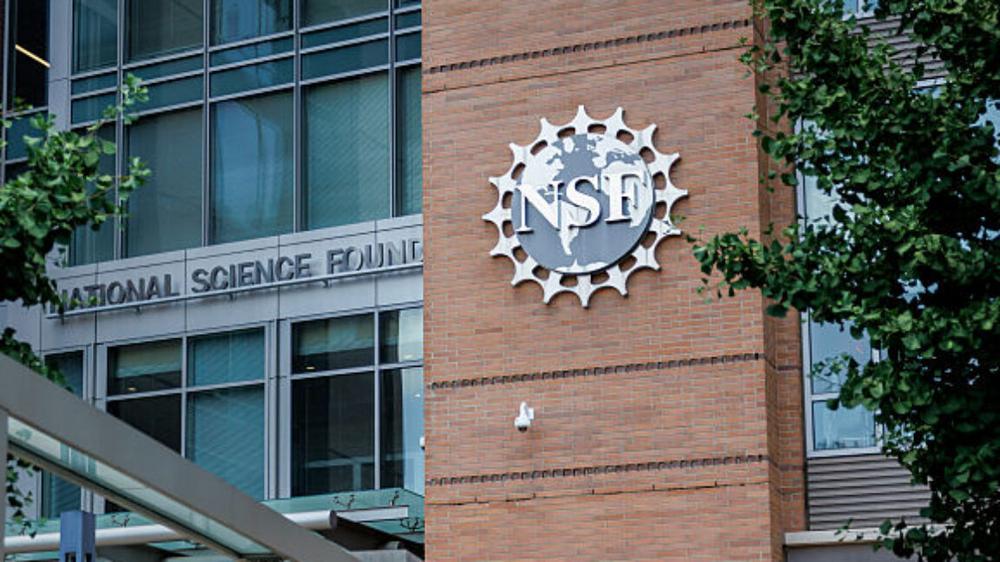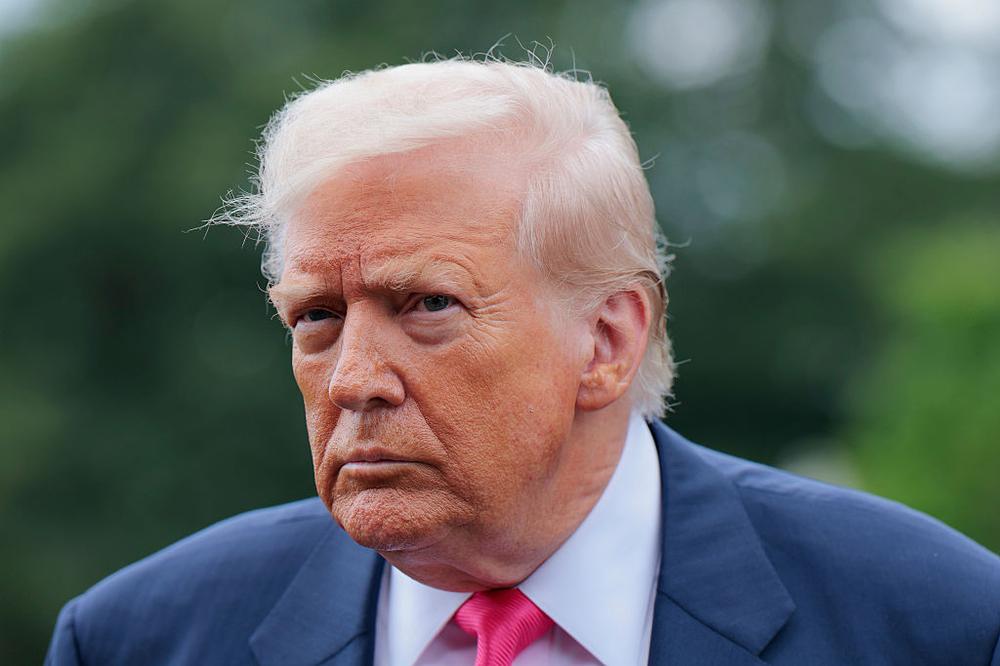Nearly 150 employees of the National Science Foundation (NSF) sent an urgent letter of dissent to Congress on Tuesday, warning that the Trump administration's recent "politically motivated and legally questionable" actions threaten to dismantle the independent "world-renowned scientific agency."
Most NSF employees signed the letter anonymously, with only Jesus Soriano, the president of their local union (AFGE Local 3403), publicly disclosing his name. Addressed to Rep. Zoe Lofgren (D-Calif.), ranking member of the House Committee on Science, Space, and Technology, the letter insisted that Congress intervene to stop steep budget cuts, mass firings and grant terminations, withholding of billions in appropriated funds, allegedly coerced resignations, and the sudden eviction of NSF from its headquarters planned for next year.
Perhaps most disturbingly, the letter revealed "a covert and ideologically driven secondary review process by unqualified political appointees" that is now allegedly "interfering with the scientific merit-based review system" that historically has made NSF a leading, trusted science agency. Soriano further warned that "scientists, program officers, and staff" have all "been targeted for doing their jobs with integrity" in what the letter warned was "a broader agenda to dismantle institutional safeguards, impose demagoguery in research funding decisions, and undermine science."
At a press conference with Lofgren on Wednesday, AFGE National President Everett Kelley backed NSF workers and reminded Congress that their oversight of the executive branch "is not optional."
Taking up the fight, Lofgren promised to do "all" that she "can" to protect the agency and the entire US scientific enterprise.
She also promised to protect Soriano from any retaliation, as some federal workers, including NSF workers, alleged they've already faced retaliation, necessitating their anonymity to speak publicly. Lofgren criticized the "deep shame" of the Trump administration creating a culture of fear permeating NSF, noting that the "horrifying" statements in the letter are "all true," yet filed as a whistleblower complaint as if they're sharing secrets.
"The Trump administration has shown that it will retaliate against anyone who dares to place their civic duty and their oath to the Constitution above the president's mission to dismantle everything that has made this country great," Lofgren said, criticizing Trump as pushing his "very narrow worldview."
Lofgren thanked NSF workers "for their bravery and their patriotism" upholding their constitutional oath and speaking out against the Trump administration.
The NSF workers are hoping she can take "immediate action" to "restore jobs, release funding, and protect the legal rights of federal workers," Kelley said.
But there may not be much that Lofgren can do with Republicans maintaining majorities in both houses of Congress and unwilling to push back on Trump's apparent power grab. Shortly after the press conference, Lofgren told Politico’s E&E News that "she’s not confident the letter will influence Trump administration policies."
"This administration does not care about science," Lofgren said.
China recruiting discarded US scientists
While NSF workers band together to resist politically motivated compromises to their agency's integrity, they plan to document any retaliation and continue demanding accountability to keep the public informed of what's happening at the institution, Soriano said.
But in their letter, they confirmed they are organizing in the dark, noting that there isn't even an "identified destination" planned for relocating NSF headquarters next year, an uncertain move they fear "will be deeply disruptive to NSF operations, morale, and employee retention."
If Congress is unwilling or unable to defend federal workers posted in legally mandated roles at NSF or billions in congressionally appropriated funding for critical science research, they also fear Trump's moves will result in "irreversible long-term damage" to "one of our nation’s greatest engines for scientific and technological advancement."
Reports seem to back up one of NSF workers' biggest concerns—that China will recruit discarded scientists—noting China immediately moved to woo top scientists Trump fired earlier this year.
In March, it was revealed that China had launched a targeted campaign particularly designed to lure talented artificial intelligence and other cutting-edge science researchers, and Fast Company reported that the effort was ramped up in April. The FBI has already sounded alarms over China's talent recruitment programs, Fast Company noted, which the law enforcement agency fears "may serve as mechanisms to extract intellectual property and sensitive research" from the US and other countries, potentially impacting both US national security and the economy. In June, Nature released a report detailing China's efforts to "attract the world’s top scientific talent," hoping to capitalize on any US losses.
"Put simply, America will forfeit its scientific leadership position to China and other rival nations," NSF workers predicted.
Whether Congress intervenes or not, some scientists are not giving up their dreams of advancing US research to keep America at the forefront of science. At least one US science advocacy nonprofit, the Union of Concerned Scientists, is working to keep any disbanded science advisory committees (SAC) together.
Those committees help government scientists stay on top of the latest research, and the nonprofit's efforts to help continue their work could ensure that the public and future administrations stay informed on scientific advancements, no matter what political agenda Trump pushes while in office. They released a toolkit in May "to help scientists convene independent SACs" that maintain best practices and continue to field public input.

 Trump’s AI strategy trades guardrails for growth in race against China
Trump’s AI strategy trades guardrails for growth in race against China